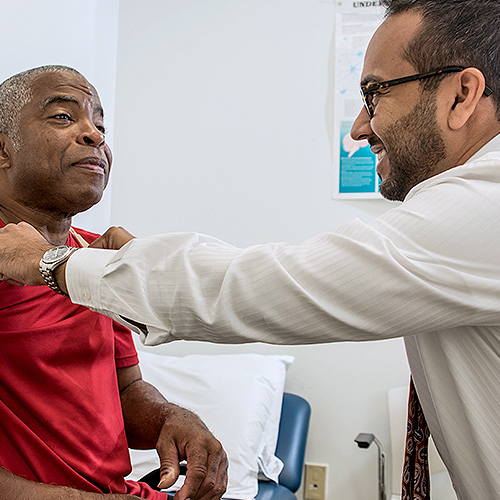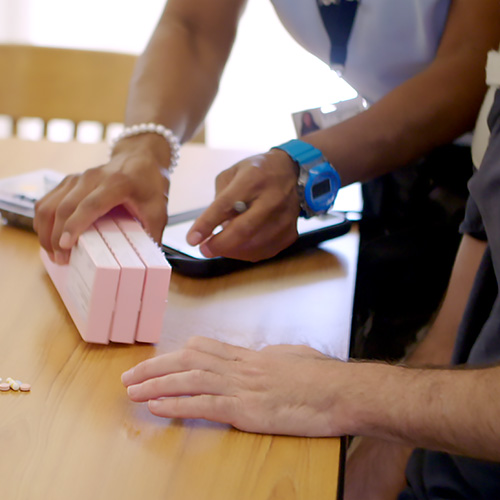Disease Management
Physicians Address a Spectrum of Medical Challenges
Brain injury can involve medical complications that require the professionals at CNS to examine and treat certain maladies that must be addressed. Successful rehabilitation is our priority, yet if a patient has significant health issues, treatment may be compromised by illness or disease. Focusing on good health in the long term is an ongoing concern of the distinguished CNS medical team. This multidisciplinary group has extensive training in working with people who have endured a brain injury. Many are esteemed researchers in the area of brain injury causes and treatment. Thus, their life’s work is dedicated to educating the public and fostering best practices in patient care.
 The medical team can work with patients in the clinic as they progress through rehabilitation. They evaluate and address a host of issues, which include:
The medical team can work with patients in the clinic as they progress through rehabilitation. They evaluate and address a host of issues, which include:
- Diabetes and hypertension
- Cardiovascular disease
- Seizures
- Spasticity (muscle tightness after brain injury)
- Neurological damage
- Neurobehavioral issues such as agitation and depression
- Conditions that require medication, which can be prescribed by CNS staff doctors
Prior to admission, these physicians conduct a review of each patient’s medical records to determine what, if any, health difficulties exist. They may work with the patient’s physician or treat the health challenge within CNS, supported by a professional nursing team.
 CNS provides a spectrum of appropriate access to medical disciplines: Medical Doctor, Doctor of Osteopathic Medicine, Neurologist, and Physiatrist.
CNS provides a spectrum of appropriate access to medical disciplines: Medical Doctor, Doctor of Osteopathic Medicine, Neurologist, and Physiatrist.
Collaboration among doctors, therapists, case managers, patients, and family inform those involved of the disease management progress. This sphere of support is apprised of critical changes, and discuss post rehabilitation plans for medical care. Advanced technology such as telemedicine systems in each clinic also aid in immediate updates on patient status when physicians need to share vital information. A physician in one CNS clinic can be consulted or interview patients in another location, when appropriate, which eliminates patient travel and delays in getting needed feedback and care.

